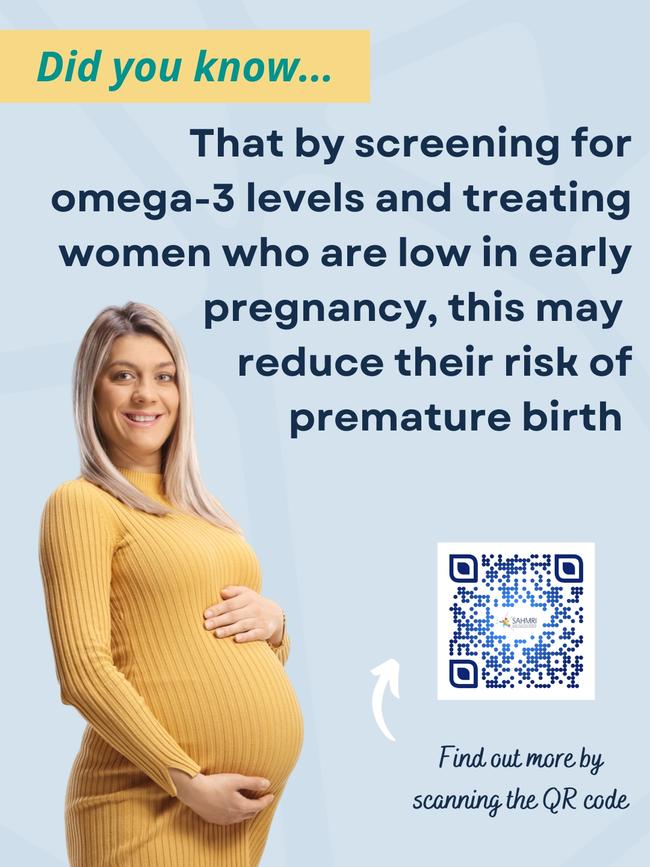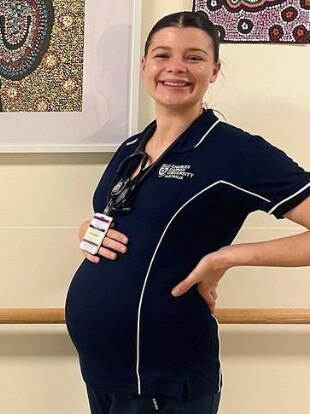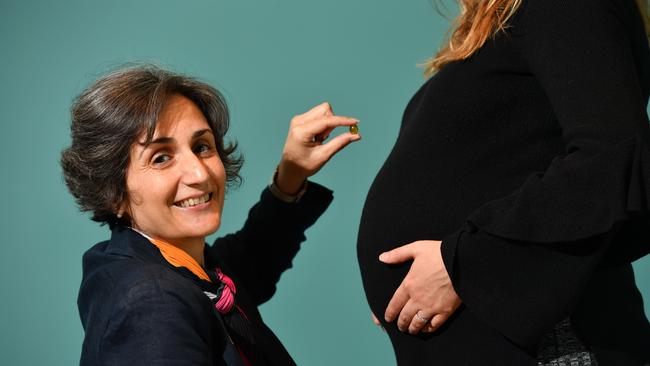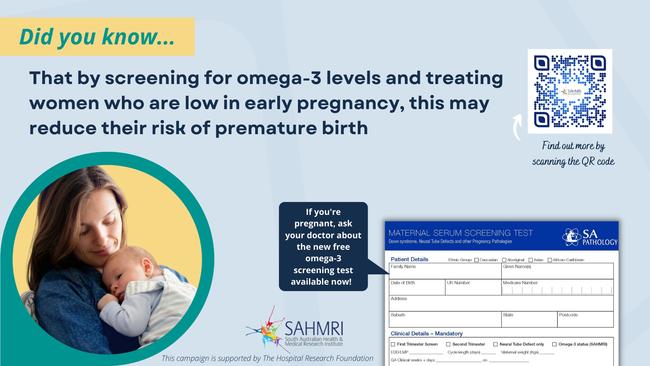South Australian research shows omega-3 can help prevent preterm births
Newly pregnant women are being urged to get tested for omega-3 levels, after breakthrough SA research showed it can help avoid risky births.
Lifestyle
Don't miss out on the headlines from Lifestyle. Followed categories will be added to My News.
Breakthrough South Australian research showing omega-3 can help prevent preterm births is being backed up with a campaign urging pregnant women to get tested in their first trimester.
Women found to have low levels of omega-3 will be encouraged to take supplements to minimise the risk of having a preterm birth – at less than 37 weeks gestation – and the associated health complications.


The public awareness campaign, funded by a $500,000 grant from The Hospital Research Foundation Group, urges women to ask their GP to add a test for omega-3 to their standard SA Maternal Serum Antenatal Screening Program, which involves a blood test collected between nine and 14 weeks and assessed by SA Pathology.
Pioneering research led by Professor Maria Makrides, theme leader at SAHMRI Women and Kids, proved increased intake of omega-3 long-chain fatty acids for pregnant women with low levels reduced their risk of premature births by 77 per cent.
Despite the evidence, Prof Makrides said testing for omega-3 levels was not widely
available or even known about.

“Being born too soon can be devastating for children and their families, and our research has proven that omega-3 fats can help reduce the risk of premature birth,” she said.
“Premature babies, particularly those born before 34 weeks, are at greater risk of chronic issues with their respiratory, immune and digestive systems and are more susceptible to problems with speech, social skills, learning and behaviour.
“By increasing their omega-3 intake, women can give themselves the best chance of carrying their baby to full term of 40 weeks. Even a few extra days in the womb can make a substantial difference when it comes to your baby’s health.”
Foods rich in omega-3, which is also critical for foetal brain and retinal development, include fish, other seafood and eggs.

Prof Makrides said it was important to test in the first trimester so there was time to correct any depletion.
“We have partnered with SA Pathology to include omega-3 screening in the standard suite of
testing, but as it is not yet embedded in care, the GP needs to request it,” she said.
“This is why our education campaign with GPs and mothers is so important, and why we’re thankful for this grant from The Hospital Research Foundation Group. To date we have reached about 35 per cent of women in South Australia but hope to increase this to 80 per cent.”
Shay Cornell, 28, who is expecting twins with husband Cam, was very interested to hear about the research.
“I take a Blackmores prenatal supplement that has 250mg of omega-3 but nothing has been mentioned to me in the pregnancy about it,” Mrs Cornell said.




